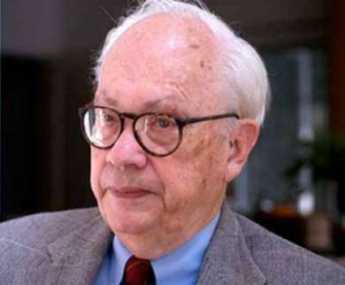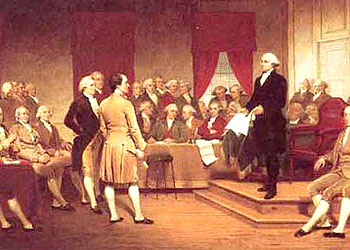Related Topics
Fisher on Running For Office
 Last night, I was honored to receive the Republican nomination for a seat in the state Assembly, to represent the district where I have lived for over fifty years.
Last night, I was honored to receive the Republican nomination for a seat in the state Assembly, to represent the district where I have lived for over fifty years.
A Minor Politician
In 2013 I ran for the New Jersey Assembly, unsuccessfully. Daughter Miriam was my campaign Manager. I learned a lot from the experience. For example, I had 700,000 constituents. Maybe I shook hands with a couple hundred.
Fisher on Representation Size
Fisher on Representation Size
|
||
| Constitutional Convention in 1787 |
According to the last census, my Legislative district (#6 in New Jersey) has 224,000 residents. If I spent five minutes talking to each one, I wouldn't have time to sleep or eat. Therefore, I get mixed feelings when I hear only 43,000 of them are registered voters, and only 23,000 of them turned out for the last election. I guess I could talk to that many, but it is pretty sad only one resident in ten bothers to vote. The same number of people voted for every R candidate, and the same number of D's voted for almost every D candidate. So, it looks as though a lot of people vote a straight-party ballot.
That's something they surely wouldn't do if they knew each candidate. And that's pretty sad because it is easily managed by party machines. I have to think these things are caused by the steady growth of the population, without comparable growth in the number of representatives, at all levels from township commissioner to President of the United States.
George Washington was bothered by the same problem. In 1787 he had nothing to say about issues during all the time he was the presiding officer of the Constitutional Convention. But on the last day of the convention, he asked for permission to step down and address the group. His conviction was that no congressman should represent more than 30,000 people, and he begged for an amendment providing for it. The delegates meant to oblige him, but somehow it got lost. If they had done what he asked, we would now have about 5000 congressmen, so it doesn't sound workable. As a practical matter, in the early 1920's Congress finally limited the size of its members to 436. So now we have exactly what Washington feared, which is each Congressman represents 700,000 people, nobody knows his congressman, it costs millions of dollars to get elected, party machines dominate what decisions aren't dictated by lobbyists.
Exactly the same thing is true of legislative districts, except the lobbyists are probably less well funded. They seem to search for party machines and spend their time (and money) on unelected party leaders. Unelected is an important word here because many county leaders take care not to hazard their future on an election. I understand the county leader in Mercer county lives on eighteen acres in the center of Princeton. I don't know his name, in fact, almost nobody knows his name, but everybody knows that God himself couldn't afford eighteen acres of Princeton. I got this from a reporter, Bob Ingle, for the Trenton newspaper who wrote a book, called Soprano State. I wish more people would read that book, so I don't have to sound so negative at times. I gather from this book, there is much to talk about.
Anyway, this representation issue is starting to hurt. I go to all kinds of meetings in my district, at least to show my face. Little did I expect I would be sitting in the audience while a professor of history, would explain that Washington's proposal was already part of the Constitution. I woke up slowly and may have got this wrong, but I believe he said it was one of the two (of the twelve original) amendments of the Bill of Rights that Thomas Jefferson recorded as not being ratified. However, Kentucky was a long way away by horseback, and the ratifiers seem to have given up on the messenger who was bringing the duly recorded, on-time, ratification from Kentucky needed to reach the required number. I guess when it got to be dinnertime they decided no messenger meant no ratification.
However, Mr. LaVerne seems to have dug up photocopies of the Kentucky document of ratification, plus the bylaws stating amendments were to be effective as of the date of ratification. Somehow, the War of 1812 got things confused even more and burnt up enough, that Washington's pet idea sort of got lost. If that's really provable, it seems to mean we already have a mandate to have 5000 congressmen (and two or three thousand Assemblymen and women in New Jersey?). The contention seems to be that for two hundred years nobody knew what to do with this bit of history, and sort of decided to ignore it. My view is that even if you knew all about this strange history, you simply can't have it both ways. Either you get stuck with the present inability to represent all those constituents, or else you get stuck with having unworkable thousands of congressmen.
I promise to think about this. And when I get an answer, I'll let you know.
Originally published: Monday, September 23, 2013; most-recently modified: Friday, July 05, 2019
